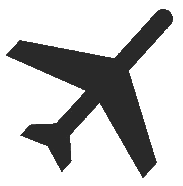Research Experience for Undergraduates (REU): Parasite Ecology
Click Here to Learn More and Apply!
Academic Level: For most summer research programs, this is your upcoming status as of the fall. Always check with the individual program's website for details.Undergraduates - First Year
Undergraduates - Sophomore
Undergraduates - Junior
Undergraduates - Senior
Note: this opportunity encourages applications from community college students.Description: The Wood Lab at the University of Washington is hiring four undergraduate students for a 10-week Research Experiences for Undergraduates (REU) internship. Interns will conduct scientific research as part of a team working at the Tulane University Biodiversity Research Institute near New Orleans, LA. Students will learn about aquatic ecosystems of the US Gulf South region, conduct an independent research project under the supervision of multiple research mentors, collaborate with an international group of senior parasite ecologists and ichthyologists, and more!
We aim to hire 2 students from UW and 2 students from universities in the US Gulf region. All travel is covered, as well as food and housing for the summer, and interns will each receive a stipend of $7,000. Students will also be supported to attend a scientific conference, where each intern will present results from their independent research project after the internship concludes.
'Note that no previous research experience is required!' We are hiring on the basis of potential, not necessarily experience. We are especially interested in students who have had to overcome obstacles in pursuit of their professional goals. We encourage applications from individuals who are members of groups that are historically underrepresented in the sciences.
The ideal candidate will:
- Be enrolled as an undergraduate at the UW or a university located in the US Gulf South region at the time of the internship
- Have taken courses in ecology
- Be interested in the field of ecology and in conducting scientific research
- Demonstrate curiosity
- adopt a rigorous and scholarly approach to science, with evidence of this from previous coursework
- be a respectful, professional, and generous team player
- have a positive attitude in the face of obstacles or setbacks
- have excellent time management skills; accomplish goals by creating realistic but ambitious plans and initiating open communication when plans need to be adjusted
- have the willingness and the courage to discuss issues openly (i.e., to give and receive feedback, to celebrate successes, and to discuss ways to overcome challenges) Bonus points for folks who have taken courses in statistics or parasitology (although these are by no means required).
For more information and to apply, please visit our website!
Participating Institution(s):(Click an institution to see all programs it hosts or sponsors)Program Materials:This Program can be Described by:Academic Disciplines:
Aquatic & Fisheries Sciences
Conservation Biology & Wildlife
Ecology & Evolution
Environmental Sciences
Microbiology
STEM Fields
Keywords:
Aquatic Animal Health
Aquatic Ecology
Community Ecology
Conservation
Environmental Change
Environmental Health
Fish Biology
Infectious Disease
Natural History
STEM Education
Learn More and Apply!
This program is funded by:
 National Science Foundation (NSF)
National Science Foundation (NSF)
Page last updated 1/19/2024
Click here to submit updates to this program listing!
Create your own user feedback survey

 National Science Foundation (NSF)
National Science Foundation (NSF) Institution that is the lead of an alliance
Institution that is the lead of an alliance Upcoming deadline
Upcoming deadline Program includes a study abroad component
Program includes a study abroad component Different from a program, an opportunity is generally short-term; they include paid workshops, travel funds, or professional development opportunities
Different from a program, an opportunity is generally short-term; they include paid workshops, travel funds, or professional development opportunities  Nationwide programs are not based at individual institutions
Nationwide programs are not based at individual institutions Program Just Posted
Program Just Posted Portable Funding
Portable Funding Funds International Students
Funds International Students Program recently updated
Program recently updated